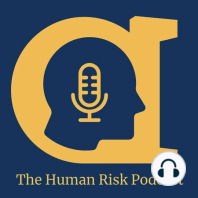22 min listen

Professor Benjamin van Rooij on COVID Compliance
Professor Benjamin van Rooij on COVID Compliance
ratings:
Length:
65 minutes
Released:
May 25, 2020
Format:
Podcast episode
Description
On this episode, I speak with Professor Benjamin van Rooij who specialises in exploring the impact Laws have on Human Behaviour. He's recently been doing some research into the impact of COVID regulations in a number of jurisdictions. We discuss what he's discovered thus far and what he thinks the future of Compliance under COVID could look like. He also highlights the factors that determine whether or not people are compliant and what governments can do to make things more effective. This is an incredibly timely, highly informative episode on a topic I'm sure we'll be returning to.Some of the research Benjamin refers to in the show:Policing Pollution: Regulating the Chemical Industry: https://crg.aic.gov.au/reports/8-92.pdfStrangers In Their Own Land: https://thenewpress.com/books/strangers-their-own-landHis article for The Hill on Social Distancing: https://thehill.com/opinion/white-house/495287-until-theres-a-cure-social-distancing-will-have-to-continueHis article on Lockdown: https://theconversation.com/how-to-keep-up-social-distancing-after-lockdown-138370Finally a link to his website: https://www.uva.nl/profiel/r/o/b.vanrooij/b.vanrooij.html?cbYou can also find him on Twitter: https://twitter.com/benfuzi
Released:
May 25, 2020
Format:
Podcast episode
Titles in the series (100)
Human Risk Webinar Recording: The Ethics of Events during a Pandemic: In this impromptu episode, Richard Bistrong, Ruth Steinholtz and I discuss the Ethics of holding an in-person event at the time of a pandemic. The discussion arose because the three of us were due to attend an Ethics Conference together next month.... by The Human Risk Podcast